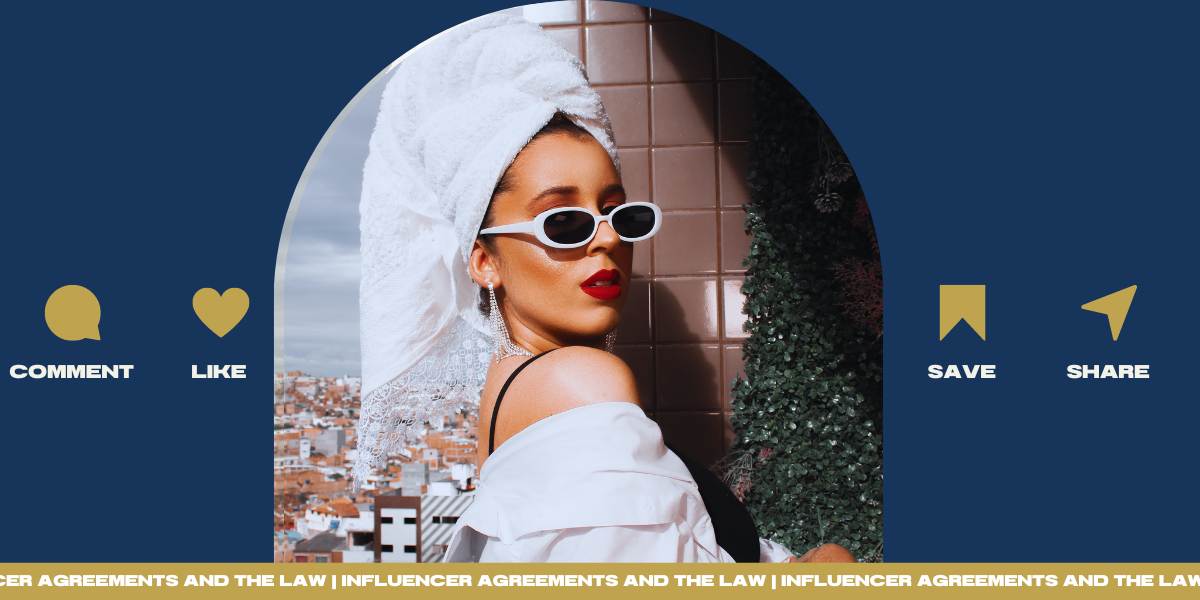In the marketing world, celebrities have been used to promote products around the world for decades. Think Michael Jordan for Nike or George Clooney for Nespresso. However, the rise of social media over the last 20 years has brought with it a new type of marketing for companies to utilise, namely, the “Influencer”.
Between 2019 to 2023, the global influencer market value tripled and is now worth an estimated $21.1 billion worldwide. The market value continues to rise exponentially and brings with it new challenges faced by both the Influencer and company working with them.
Recent Legal Developments
Currently the Advertising Standard Authority (“ASA”) and Committee of Advertising Practice (“CAP”) are responsible for ensuring that UK media (including Influencers) stick to the advertising rules. On 23 March 2023, guidance was published by ASA, CAP and the Competition and Markets Authority (“CMA”) setting out the rules that must be followed by Influencers when posting about a company’s products or services.
Essentially, the guidance sets out that it is against the law for an Influencer to be paid for a promotion, without making clear in the content or images that the content is advertorial. The purpose of this rule being to avoid “unfair commercial practices”, including giving the impression that an Influencer is acting outside of their business purposes or falsely representing themselves as a consumer.
Importantly, there seems to be a common misconception that payment must be received in order for the need to make it clear the content is advertorial. However, this is a fallacy, “payment” counts as any incentive, even if not monetary.
This includes but is not limited to:
- being a brand ambassador;
- being a shareholder;
- being a director or having a position in the company;
- you are collaborating on your own ‘edit’ or ‘collection’;
- you are receiving an exclusive discount or a commission; or
- you are given products, services, trips, hotel stays, event invites, loans, leases, rentals, or shares etc., for free (whether requested or unsolicited).
It also does not matter if there is no obligation in the agreement to post about free items / services you have received. It still counts as payment.
How to ensure you are complying with the law?
You must make it clear that there is some sort of commercial agreement in place. People should be able to recognise immediately when content is advertising. ASA and CMA propose that you label your post with “#Ad”, “#Advertisement” or “#Advertising” amongst a few other recommendations, as a minimum requirement. A tool such as Instagram’s “Paid Partnership” feature is also sufficient, provided it is upfront, clear and prominent. The advice is to avoid labels such as “Gift/Gifted”, “Sponsored” or “Affiliate”.
Failure to follow the guidance could result in formal action by the CMA or Trading Standards Services. See here for a list of Influencers / companies the CMA has taken action against to date.
Key Considerations for both Influencers and Companies when Drafting Agreements
There are a few key points that should be considered when entering into any agreement:
Services
It is important that both parties are aware of the service / deliverables that are to be provided by the Influencer. Removing any ambiguity will only serve to promote good relations and minimise the risk of any potential disputes.
Exclusivity
Influencers tend to work with many different brands so from a company perspective, it should consider whether they would like to include an exclusivity clause. A collaboration with a similar service / product by the Influencer may dilute the effectiveness of the collaboration.
Alternatively, as an Influencer it is important that you pay attention to this clause and consider whether it is something that you can agree to. When negotiating a contract, you may want to demand a higher fee for providing such exclusivity. However, this will likely need to be balanced against the content you may be restricted from making or agreements you can enter into in the future.
Payment
It is sensible that the payment structure is clear to both parties. Consider whether payment is to be made monthly, whether expenses are included, and if so, is there a limit? Perhaps payment will be based on the success of the posts, how will this be structured? How will success be defined?
The above considerations are key for both the company and Influencer and making sure both parties are clear on these terms will only prove to be beneficial.
Indemnification Clause
Limiting liability will be a standard term that should be included in agreements of this type. However, how it is weighted usually depends on who has drafted the agreement. Both parties will want to limit their liability for any damages the other may suffer as a result of promoting the product / service. Where it is not possible to exclude liability completely you may want to limit liability to a certain amount, for example, the amounts paid under the agreement. This is something that is routinely negotiated and should be paid close attention to from both sides.
Intellectual Property Rights
Having an understanding of whether it is the Influencer or the company that owns the rights to the post and its wider use should be clarified. As a company it will want to make sure that by reusing the post internally, whitelisting the content or using it as part of wider external campaigns, that it is doing so lawfully. Without gaining such permissions, the company’s use of the ad will be restricted.
As an Influencer you may want to consider how many of the rights to the content you create you want to give away. If you are to give away full permissions to the intellectual property rights, will you agree to do so in perpetuity? Should the company request you do so, you may be within your rights to demand a higher fee.
Term
As a company, paying for particular content to be made, you will want to be clear as to how long you expect the post to be on the agreed social media platform(s). It may be prudent to include a clause that mentions how much should be refunded should this requirement fail to be met.
As the Influencer, you may want to maintain some control as to the content on your page. You may even have the post removed by the social media platform through no fault of your own. Knowing where you stand if such an issue is to arise should therefore be an important consideration.
Conclusion
Whether you are the Influencer or the company, having an agreement in writing, coupled with adequate knowledge of the law is essential. It protects the companies from poor campaign results and controversy, whilst simultaneously providing the Influencer with clarity as to what is being asked of them.
Instructing a solicitor to draft, review or negotiate these agreements can provide peace of mind to you or your company in ensuring such an agreement is fit for purpose.
Commercial Law Solicitors London and Guildford
To speak to our specialist Commercial Law Solicitors, call us on 01483 451 900 or 020 7421 9421. Alternatively, you can email us or make an online enquiry, and we will call you.
About the Author

Martin Philip
Solicitor
- Tel: 020 7421 9421
- Email: martin@gordonsols.co.uk
